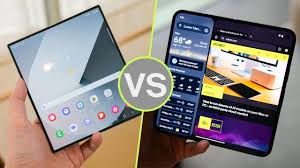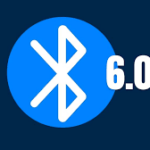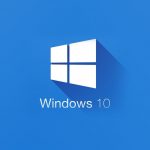Foldables win in a lot of areas, except the most important
Earlier this year, I wrote about how I hoped to see the Android equivalent of an iPad Mini. While we have plenty of options to choose from if you want a powerful tablet with a big screen, smaller tablets are usually packed with less-than-impressive specs. More recently, I’ve wondered whether a small and powerful Android tablet is really necessary, given that I always carry a foldable phone with me.
In terms of performance, foldables take the cake, and it’s not even close. The Galaxy Z Fold 6 is powered by the Snapdragon 8 Gen 3, the OnePlus Open uses the 8 Gen 2, and the Pixel 9 Pro Fold relies on the Tensor G4. Sure, the Pixel might fall short of the other two foldables I mentioned, but it’s no slouch.
As for tablets, there just aren’t that many options if you want flagship specs but a screen under 10 inches. Lenovo is really the only game in town, as the Legion Y700 sports an 8.8-inch screen and is powered by the Snapdragon 8 Gen 3. That presents a different problem, however, as the Y700 isn’t officially sold in the States, meaning that you have to go through Giztop or AliExpress to get one.
The smallest flagship tablet that I’ve come across that is readily available, is the recently-released RedMagic Nova Gaming Tablet. It too makes use of the Snapdragon 8 Gen 3 but comes with a 10.9-inch screen. While Samsung ditched the 11-inch model with the Galaxy Tab S10, the Tab S9 and its Snapdragon 8 Gen 2 is still available. But even then, we don’t know how long that will be the case, and it’s still too large.
All the while, foldable phones offer screens that fall right within the size range that I would want. The Galaxy Z Fold 6 is one of the smaller ones with its 7.6-inch display, while the Vivo X Fold 3 Pro offers up an even larger 8.03-inch panel. Unfortunately, Vivo’s foldable presents the same problem as the Y700, as you can’t just pick it up in Best Buy or on Amazon.

With all of that being said, do I really need to jump through a bunch of hoops just to get a powerful tablet? Or are foldable phones simply the better overall option for those who either have one or are considering one?
The short answer to this question should be fairly obvious. But there are a few wrinkles that have kept me from coming to a definitive conclusion.
Get the latest news from Android Central, your trusted companion in the world of AndroidContact me with news and offers from other Future brandsReceive email from us on behalf of our trusted partners or sponsorsBy submitting your information you agree to the Terms & Conditions and Privacy Policy and are aged 16 or over.
Foldable phones are mostly the better option, simply because they’re both a phone and a tablet in a single device. With the work that Samsung, Google, and OnePlus have been putting into the software, the experience is also largely the same between each company’s foldable phone and tablet offerings.

The biggest difference comes in the form of multi-tasking, at least to a certain extent. Many of the best Samsung phones and tablets include the ability to use DeX Mode, essentially turning your device into a Chromebook. However, unlike the Galaxy Tab S9 or Tab S10, the only way to use DeX on the Fold 6 is to either plug into an external display or connect to one wirelessly. Meanwhile, you can just tap a button on the Galaxy Tab keyboard and switch over from the traditional tablet interface to DeX mode.
This isn’t the case when looking at the Pixel 9 Pro Fold and the Pixel Tablet. Even while running the latest Android 15 beta, I’m unable to do anything but mirror the screen from the 9 Pro Fold, which is simply disappointing. My disappointment is further compounded by the fact that you can use desktop windowing on an external display with the Pixel 9 Pro XL but not the Pro Fold.
On the bright side, after enabling the “Freeform windows” toggle in Developer Options, I can have up to four free-floating windows on the Pixel Tablet. Things work surprisingly well, and Google has done an excellent job of making things look more aesthetically pleasing than in the days of old. The only downside is that this isn’t a feature that’s enabled out of the box, but I expect that to change sooner rather than later.
Although OnePlus doesn’t have a specific desktop mode for its Pad 2 or the OnePlus Open, it has another trick up its sleeve. You can actually use your phone from the Pad 2, bringing Phone Mirroring to a tablet, which is something I didn’t have on my bingo card. Much like the experience is largely the same with Samsung devices, the various features and multitasking options are pretty similar between the OnePlus Pad 2 and Open.

One area where all of the tablets mentioned have an advantage is when using a stylus. Samsung includes one in the box, Google doesn’t sell one at all but relies on the USI 2.0 standard, and while OnePlus does offer one, you have to buy it separately. But that’s not the advantage that I’m talking about.
Excluding the Pixel 9 Pro Fold, which lacks stylus support, you’ll have to contend with the crease on foldable phones. It’s fine for the most part and is a lot better than it used to be, but the crease can still be a source of frustration. None of those problems exist with the slabs of glass on a tablet. Drawing a straight line is entirely dependent on your ability to actually draw a straight line.
On the flip side, you don’t exactly want to whip out the 14.6-inch Galaxy Tab S10 Ultra while you’re waiting in line at the store and want to turn a picture into a meme. The same sentiment rings true even with the OnePlus Pad 2 and Galaxy Tab S9. Meanwhile, provided that you have the S Pen Fold Edition or Oppo Pen you can do exactly that with the Galaxy Z Fold 6 or OnePlus Open.

There’s no arguing or denying that foldable phones are more versatile compared to the best Android tablets or even phones. However, there is one argument to be made, and it’s the most important one of them all — price.
Without taking trade-ins or deals into consideration, you could import the 16GB/512GB model of the Lenovo Legion Y700 2024 from Giztop for about $600. Heck, you could even go so far as to toss in the official leather case, Legion Gaming Controller G7, and Lenovo’s Stylus Pen, and you would be looking at around $760.
Meanwhile, the Galaxy Z Fold 6 starts at $1,899, which includes 12GB of RAM and 256GB of storage. If you want to match up the storage, the 512GB model will set you back just north of $2,000. Samsung doesn’t offer the Fold 6 with 16GB of RAM, and that doesn’t include the S Pen or case.

You’re looking at another $60 for just the stylus or $100 if you want the official S Pen case. At that price, I could buy two Y700 tablets, complete with accessories, and still have money left over to snag a couple of different controllers or an external SSD to house my ROM collection.
Now, there’s a good chance that you might be swayed into changing your mind in the very near future. The 2024 holiday shopping season is already underway, with Black Friday right around the corner.
If Prime Day was anything to go by, then I suspect that we’ll see some pretty incredible deals pop up for both foldable phones and tablets. With that in mind, don’t just jump at the first deal that you see just for the sake of it. Even still, I’m hoping to see some steep discounts on foldable phones, but I suspect there will also be plenty of tablet deals to be had.
For as much as I want foldable phones to take over the world and replace the slabs of glass that we’ve been reliant on for years, we’re just not there yet. Frankly, I don’t know if we’ll ever actually get there with book-style foldables as flip phones continue to rise in popularity.




